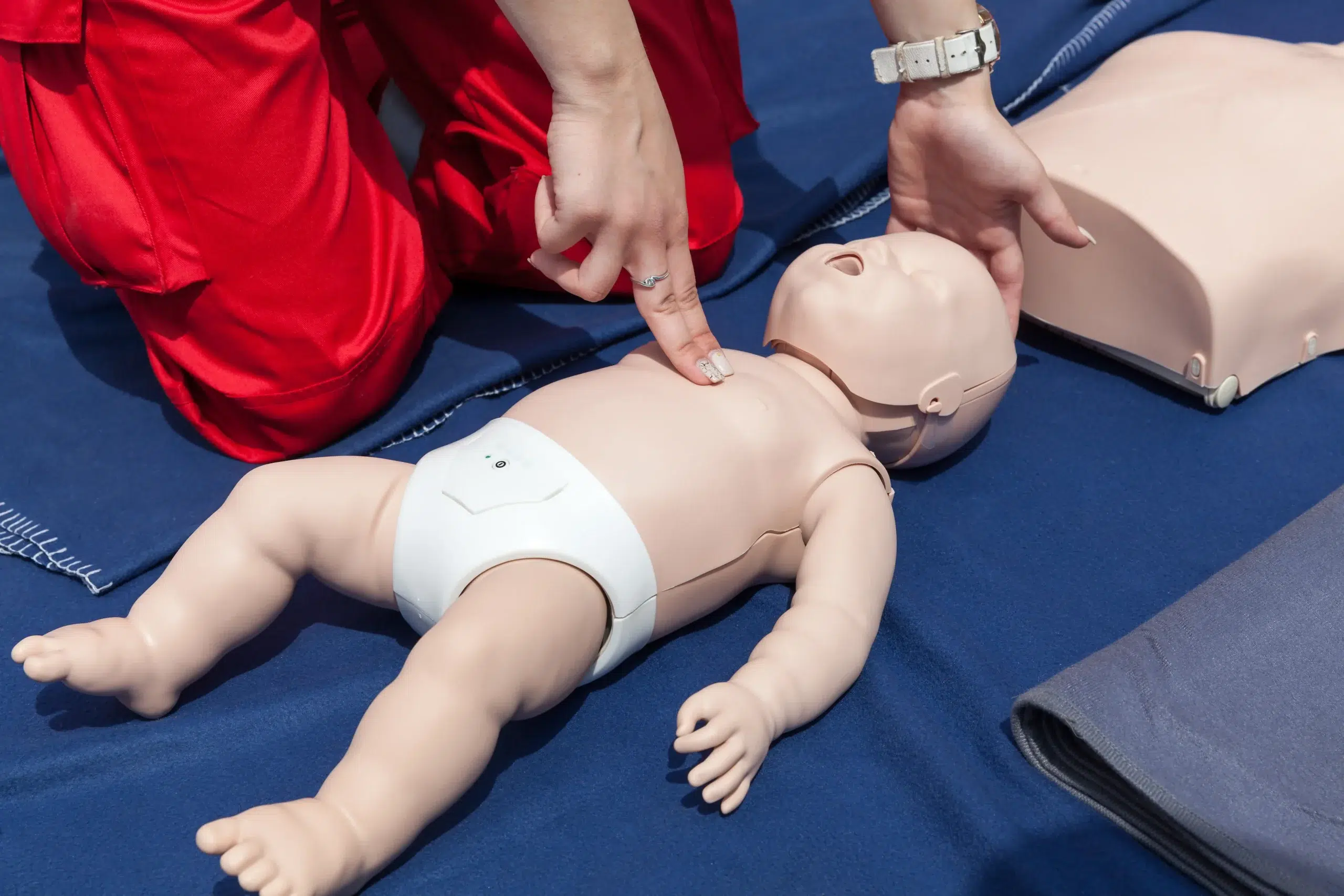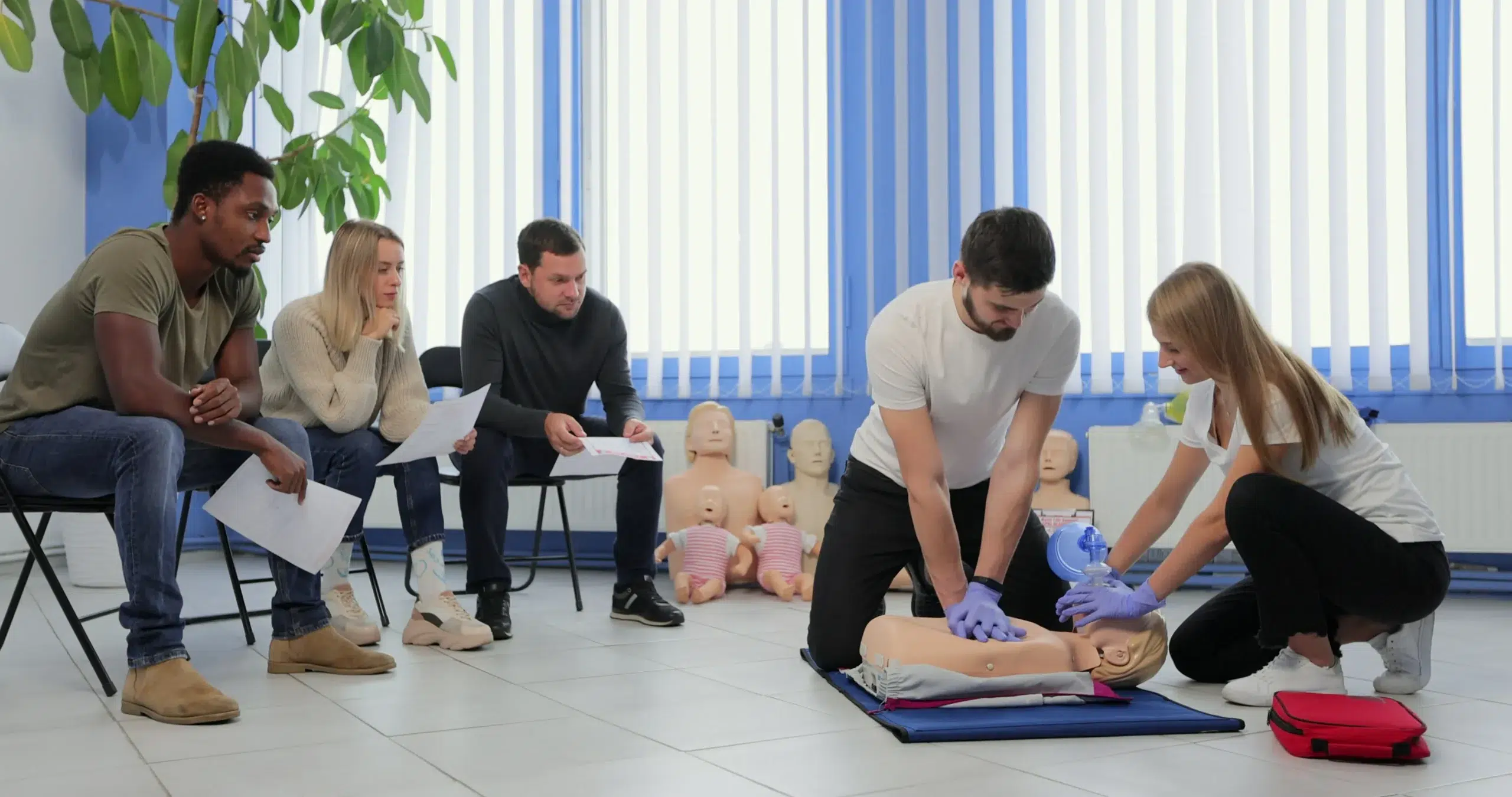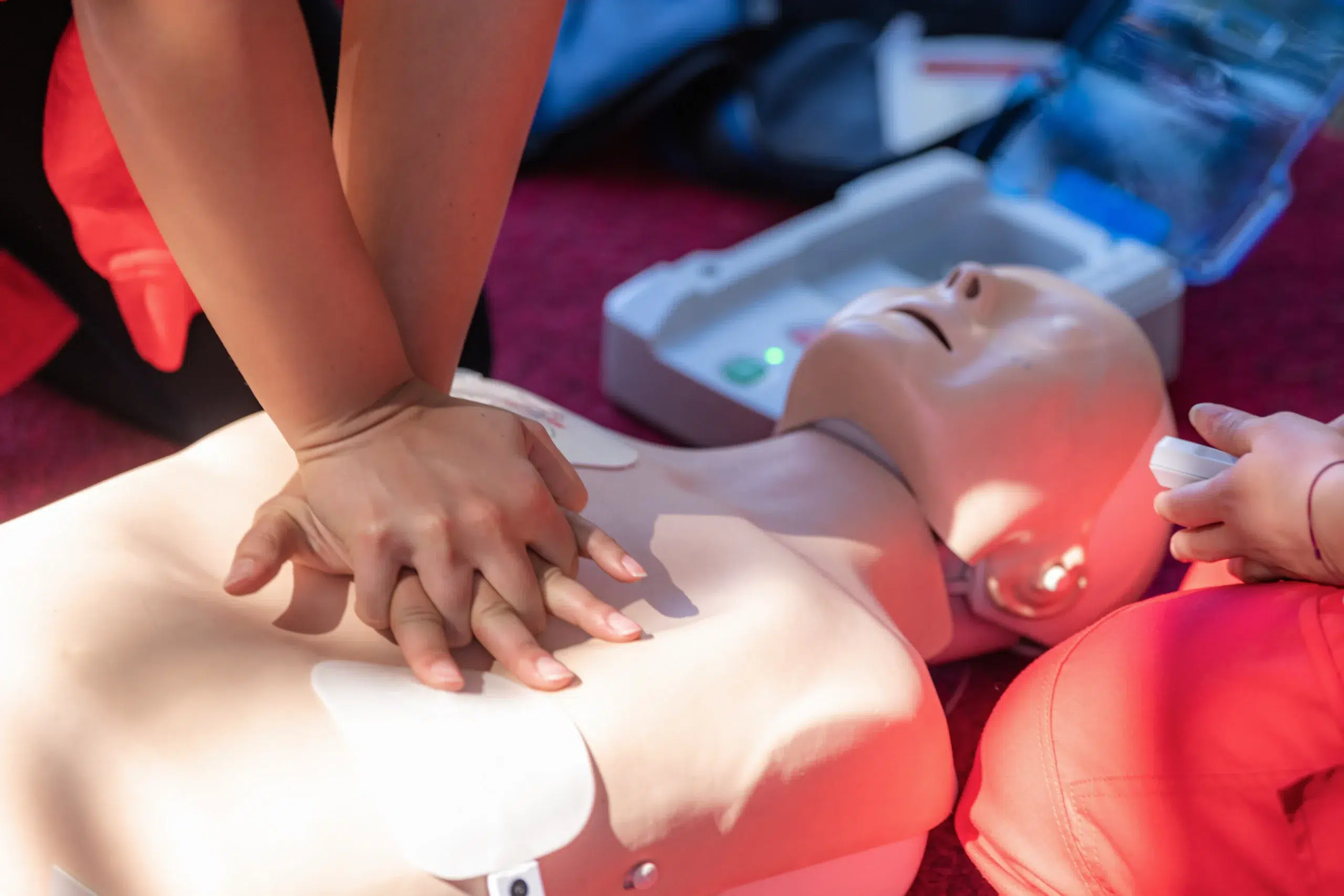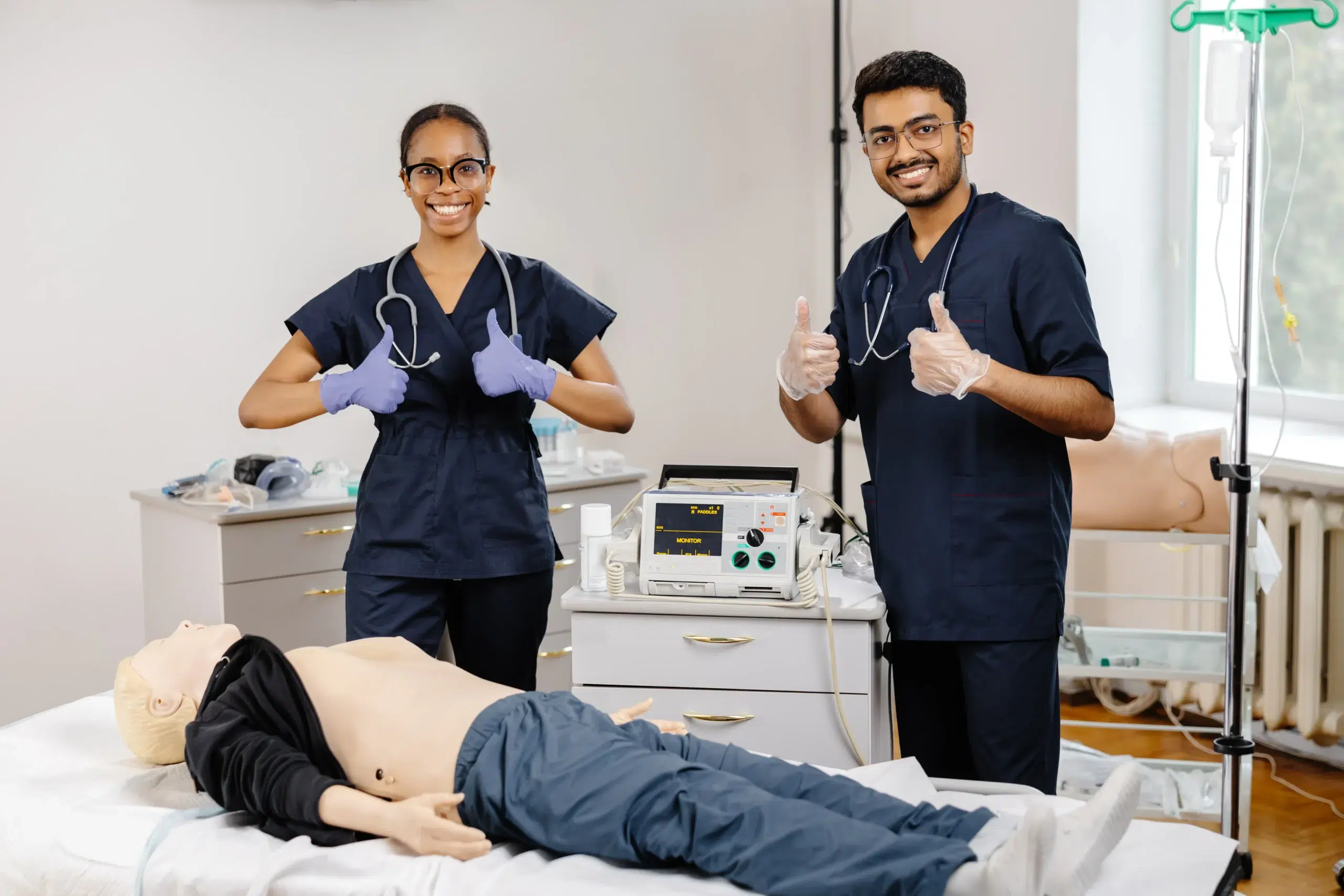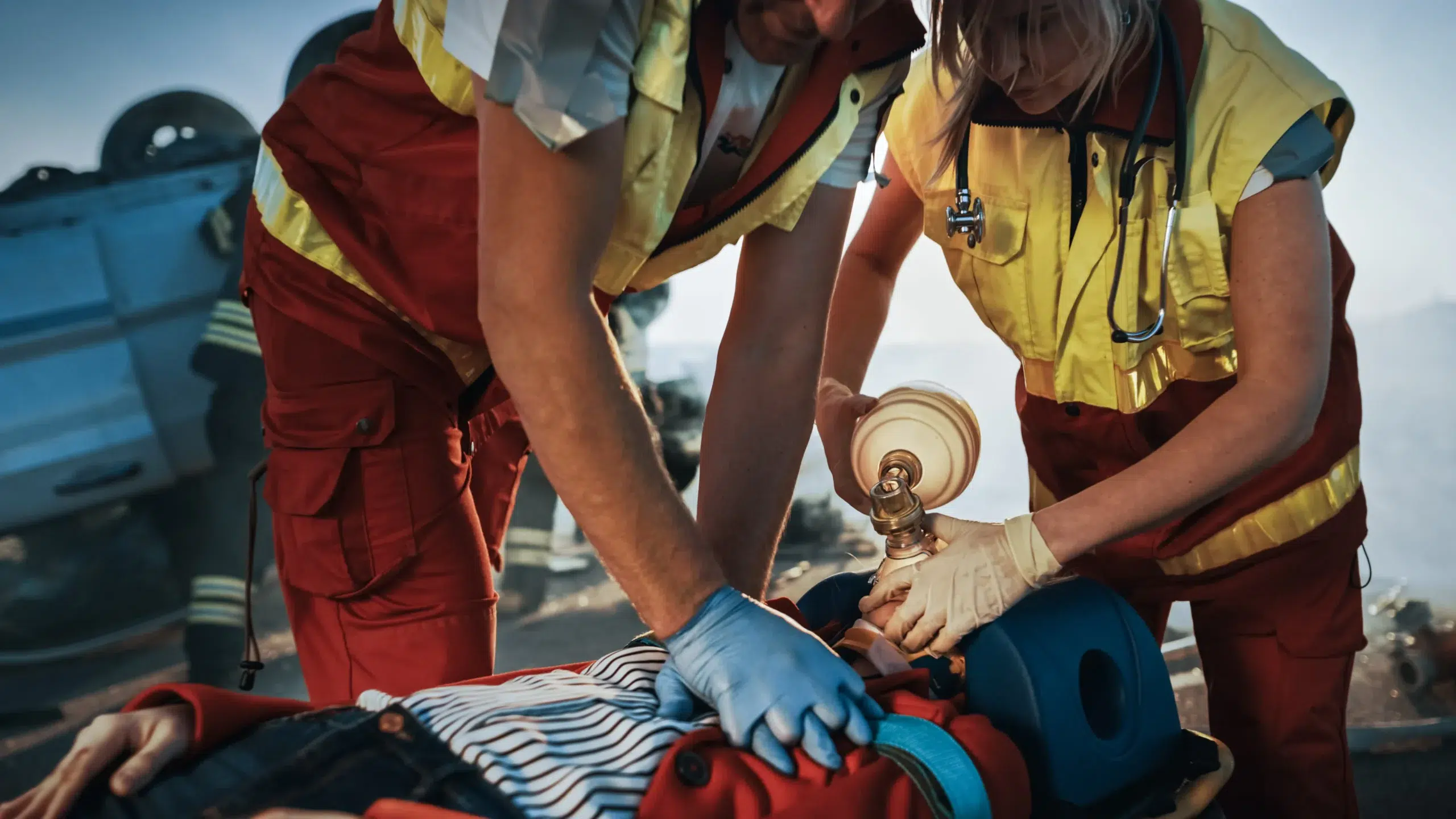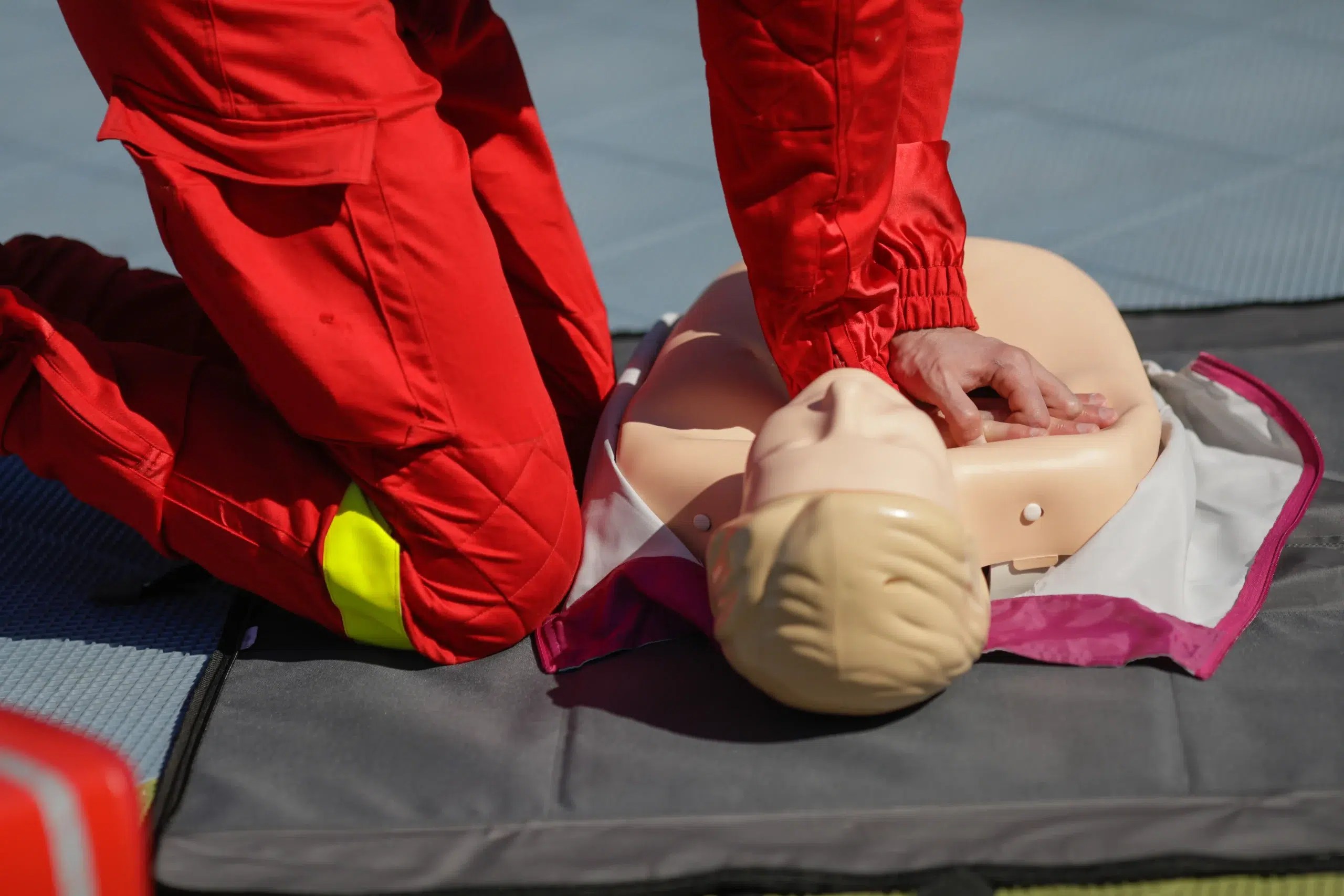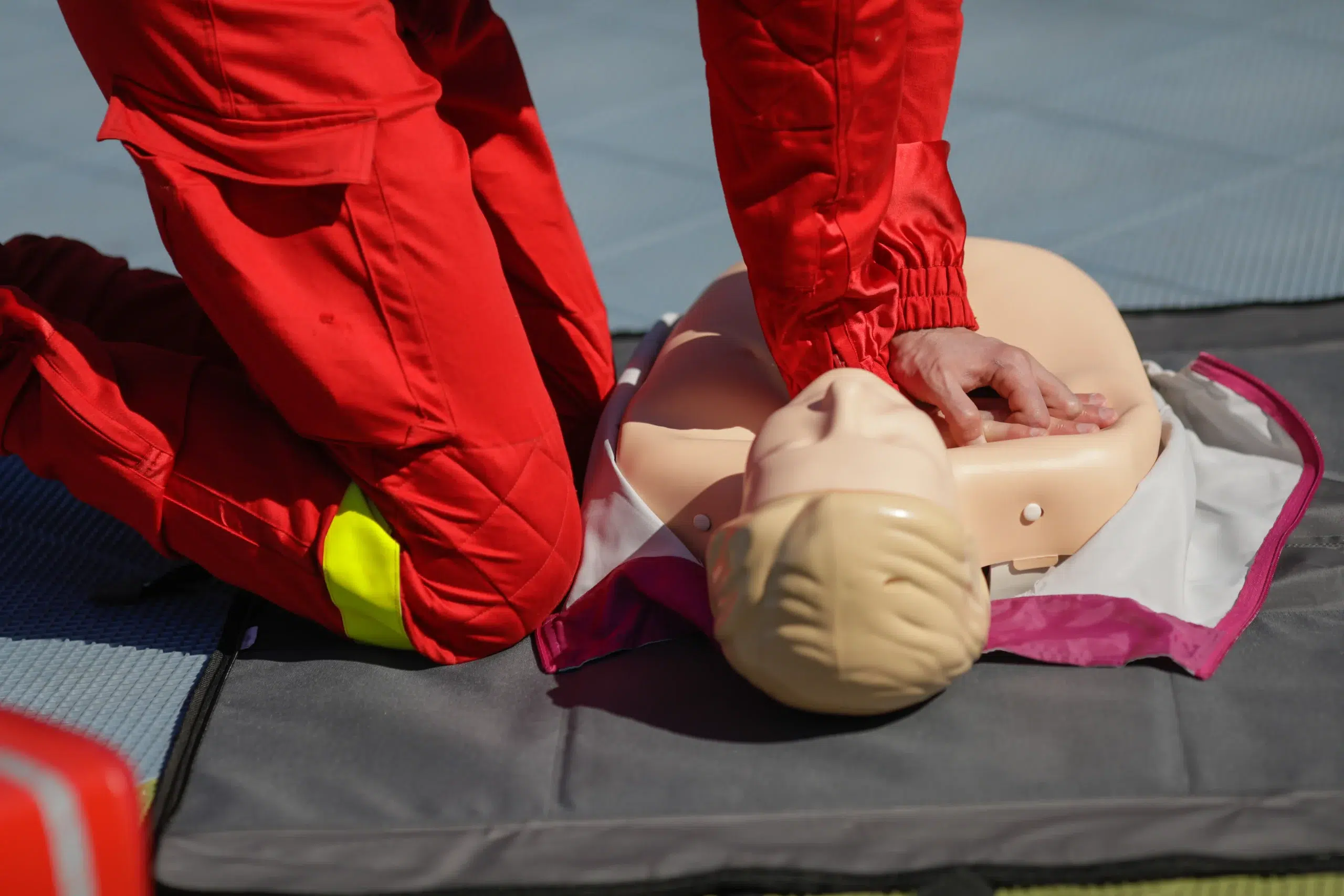Learning CPR can empower you to save a life, and knowing where to find American Heart Association (AHA) certified training in San Jose is the first step. Whether you’re a healthcare professional needing to renew your certification or a concerned parent wanting to learn essential lifesaving skills, this guide breaks down everything you need to know about AHA courses in San Jose. We’ll cover course options, pricing, finding training centers, and debunk some common CPR myths. Let’s equip you with the knowledge and confidence to respond to emergencies.
Key Takeaways
- AHA Certification Empowers You: Whether you’re a healthcare professional, a parent, or simply want to be prepared, AHA certification equips you with life-saving skills and boosts your confidence in emergencies. Find the right course to match your specific needs and goals.
- Convenient Training Options Are Available: Easily locate AHA-certified courses in San Jose, Santa Clara, and Sunnyvale. Explore various training centers, compare schedules, and choose the best fit for your busy life.
- CPR and First Aid Are for Everyone: Don’t let misconceptions hold you back. Anyone can learn these essential skills. Get certified and become a valuable resource in your community, ready to respond effectively in critical situations.
What is the American Heart Association’s Role in San Jose?
The American Heart Association (AHA) plays a vital role in championing cardiovascular health and education in San Jose. As a leading organization in heart health, the AHA dedicates itself to funding research and providing training that can save lives. The AHA has contributed over $3.3 billion to cardiovascular and stroke research, supporting advancements like CPR techniques and the development of pacemakers (American Heart Association – Silicon Valley Office).
In San Jose, the AHA offers a range of CPR and first aid training courses, including Basic Life Support (BLS), Advanced Cardiovascular Life Support (ACLS), and Pediatric Advanced Life Support (PALS). These courses equip individuals with the skills to respond effectively in emergencies. The AHA focuses on creating a fun, engaging learning environment, making these essential skills more accessible (CPR Training Center). Beyond these core courses, the AHA also supports programs like “Saving Strokes,” a golf rehabilitation initiative for stroke survivors, which helps improve their strength, flexibility, and coordination (American Heart Association – Silicon Valley Office). Through these diverse efforts, the AHA improves individual health outcomes and fosters a community committed to heart health and wellness in San Jose.
Your Guide to AHA Courses in San Jose
This section outlines the key AHA courses offered in San Jose, catering to both healthcare professionals and the wider community. Choosing the right course depends on your specific needs and background. Safety Training Seminars offers a variety of courses to meet those needs.
BLS for Healthcare Providers
The BLS Provider Class – American Heart Association BLS Certification in San Jose is designed for healthcare providers and those in medical settings. This course covers essential skills needed to respond to life-threatening emergencies, including CPR, recognizing and relieving choking, and using an AED. It emphasizes teamwork, high-quality chest compressions, and effective ventilation techniques. BLS certification is often a fundamental requirement for many healthcare roles.
ACLS
ACLS (Advanced Cardiovascular Life Support) certification is crucial for healthcare professionals who manage cardiovascular emergencies. This advanced course builds upon the foundation of BLS, covering more complex algorithms for managing cardiac arrest, stroke, and other acute cardiovascular conditions. ACLS training emphasizes effective team dynamics and rapid response strategies.
PALS
PALS (Pediatric Advanced Life Support) is designed for healthcare providers who respond to emergencies in infants and children. This specialized training focuses on the distinct physiological differences between children and adults, equipping participants with the skills to assess, manage, and stabilize pediatric emergencies. PALS certification is vital for pediatricians, nurses, paramedics, and other healthcare professionals working with children.
Heartsaver CPR AED
The Heartsaver CPR AED course teaches essential lifesaving skills to anyone, regardless of medical background. This course covers CPR, AED use, and relief of choking in adults, children, and infants. It’s ideal for community members, teachers, coaches, and anyone who wants to be prepared to respond to emergencies.
First Aid
The Heartsaver First Aid course provides comprehensive training in responding to a wide range of injuries and illnesses. Participants learn to manage bleeding, burns, fractures, and other medical emergencies until professional help arrives. This course complements CPR and AED training, providing a well-rounded skill set for handling various emergency situations.
AHA Course Pricing and Discounts
Getting certified to save a life shouldn’t break the bank. Let’s explore the costs associated with American Heart Association (AHA) courses in San Jose and how you can find the best value.
Course Costs
In San Jose, AHA courses like CPR and First Aid typically start around $140. This often covers your online training, the in-person skills test, and your official AHA certification card. For example, Bay Area CPR offers a comprehensive training package at this price, making sure you’re fully prepared for certification. Keep in mind that pricing can vary based on the specific course and training center.
Discounts and Promotions
It’s always a good idea to check for discounts and promotions before registering for any CPR or First Aid course. Many training centers offer deals throughout the year. You might find seasonal promotions, student discounts, or even discounts for registering multiple people. Don’t assume the listed price is the final price – a little research can often save you money. While it’s true there are several places offering CPR training, remember that the AHA provides high-quality, evidence-based training, and sometimes special offers sweeten the deal.
Group and Corporate Rates
If you’re coordinating training for a group or your company, look into group and corporate rates. Many providers, including Bay Area CPR, offer discounted pricing for larger groups. Some training centers will even come to your workplace to conduct the training, which can be incredibly convenient and cost-effective. This on-site option eliminates travel time for your employees and ensures everyone gets certified together.
Find AHA Training Centers
Finding the right training center for your American Heart Association (AHA) certification is an important first step. Whether you’re in San Jose, Santa Clara, or Sunnyvale, convenient options exist for high-quality instruction.
San Jose Locations
San Jose offers several locations for AHA courses like CPR, BLS, ACLS, and PALS. For hands-on training with real-life scenarios, check out the CPR Training Center. They emphasize practical skills to prepare you for actual emergencies. You can find additional CPR classes in San Jose with a quick search.
Santa Clara & Sunnyvale Locations
Residents of Santa Clara and Sunnyvale can find a comprehensive selection of AHA courses at Safety Training Seminars. They are committed to delivering training that adheres to the latest AHA standards, ensuring you receive up-to-date instruction and are well-prepared for any cardiac emergency. Browse their course calendar to find upcoming classes.
Contact Info and Enrollment
Ready to enroll? Safety Training Seminars’ main location is at 1261 Lincoln Ave., Suite 204, San Jose, CA 95125. You can contact them at (408) 495-8913 with any questions or to register for a class. They make it convenient to gain these vital CPR and first-aid skills.
Course Length & Certification
Knowing the time commitment and certification process for each American Heart Association (AHA) course will help you plan your training. We’ve outlined key details below to make it easier for you to choose the right course.
Time Commitment per Course
The length of each course varies depending on the content covered. A basic CPR course might take a few hours, while more advanced certifications like BLS for Healthcare Providers or ACLS could require a longer time commitment. Be sure to check the individual course descriptions for specifics when you register.
Certification Validity & Renewal
AHA certifications, such as CPR and First Aid, are typically valid for two years. This standard ensures that certified individuals stay up-to-date with the latest guidelines and best practices. You’ll receive a course completion card upon finishing your training; check it for the exact expiration date.
Maintain Skills with RQI
The RQI program (Resuscitation Quality Improvement) offers a convenient and flexible way for medical professionals to renew their BLS, ACLS, and PALS certifications. RQI combines online learning with in-person skills sessions, allowing you to complete the requirements at your own pace. It’s a popular option for busy healthcare providers in the San Jose area.
Quality Instruction & Your Experience
Choosing the right CPR certification course is a big decision. You want to feel confident in your skills and comfortable with the learning environment. At Safety Training Seminars, we prioritize high-quality instruction and a positive learning experience.
Instructor Qualifications
Our instructors bring years of experience to the classroom, with backgrounds in EMT, nursing, and other medical fields. This real-world experience translates to practical, engaging instruction that goes beyond the textbook. Our training adheres to OSHA standards, ensuring you receive comprehensive and up-to-date information. Knowledgeable instructors are key to building student confidence and competence.
Hands-on Practice
We know that learning CPR is best done through hands-on practice. Our courses emphasize interactive learning, giving you ample opportunity to practice your skills in a supportive environment. We aim to make learning CPR and First Aid accessible and less intimidating through a fun and engaging learning environment. We encourage questions and create a space where students feel comfortable practicing.
Multilingual Options
We understand that clear communication is crucial in emergencies. To better serve our diverse community, we offer classes in Spanish and Vietnamese, ensuring that language barriers don’t prevent anyone from gaining these life-saving skills. We believe that everyone should have access to high-quality CPR training.
Benefits of AHA Certification
Getting your American Heart Association (AHA) certification is more than just checking a box; it’s an investment in yourself, your career, and your community. Whether you’re a healthcare professional, a childcare provider, or simply someone who wants to be prepared for anything, an AHA certification offers significant advantages.
Advance Your Career
AHA certifications are highly regarded by employers across various industries. Holding an AHA certification, like BLS for Healthcare Providers, demonstrates a commitment to maintaining high standards and a dedication to professional development. This can give you a competitive edge when applying for jobs or promotions. It signals to potential employers that you possess the skills and knowledge to handle critical situations. Many healthcare facilities, for example, prefer or require AHA certifications for their staff.
Meet Job Requirements
For many professions, particularly in healthcare and childcare, AHA certification in CPR and first aid is often a job requirement. These certifications ensure that professionals working in these fields are equipped to respond effectively to medical emergencies. From nurses and doctors to daycare providers and camp counselors, having a current AHA certification is often a condition of employment. Check with your employer or licensing board to confirm the specific certifications you need. You can find CPR and First Aid courses in San Jose through Safety Training Seminars.
Prepare for Emergencies
Perhaps the most important benefit of AHA certification is the ability to confidently respond to emergencies. AHA courses provide the training and skills necessary to provide immediate care during life-threatening situations. This preparedness extends beyond the workplace and empowers you to assist family, friends, and community members in times of need. Knowing how to perform CPR can make a profound difference. Learn more about common misconceptions about CPR to better understand its importance.
Choose the Right AHA Course
Picking the right AHA course is the first step towards feeling confident and prepared in a medical emergency. Let’s break down how to find the perfect fit for you.
Assess Your Needs
Before you jump into a course, take a moment to consider what you need. Are you a healthcare provider needing BLS certification? Or are you a teacher, coach, or parent looking for a CPR/First Aid course? Think about your current role and any certifications that might be required or helpful. Also, consider how you learn best. Do you prefer hands-on learning in person, or would a blended learning approach with online components be a better fit? Finally, think about your schedule and whether you need a weekday, weekend, or more flexible option.
Compare Courses
Once you have a better understanding of your needs, you can start comparing the different courses available. Safety Training Seminars offers a wide range of AHA courses, from basic CPR and First Aid to advanced certifications like ACLS and PALS. We’re proud to be a woman-owned business and offer a low-price guarantee, so you can be sure you’re getting good value. Learn more about each course by browsing the descriptions on our website.
Scheduling & Online Options
We know busy schedules can make it tough to find time for training. That’s why we offer AHA courses seven days a week in San Jose. We also offer courses in nearby Santa Clara and Sunnyvale. For added convenience, some certifications, like our RQI program, have online components. This blended learning style lets you complete some coursework online at your own pace, then attend an in-person skills session. Check our website for specific course schedules and online options.
CPR & First Aid Myths Debunked
It’s easy to get confused about CPR and first aid, especially with so much information (and misinformation) floating around online. Let’s clear up some common misconceptions so you can feel confident responding to emergencies.
CPR Performance Myths
One persistent myth is that only medical professionals can perform CPR. This simply isn’t true. Anyone can learn CPR, and bystanders are often the first on the scene when someone experiences cardiac arrest. Hands-only CPR, focusing solely on chest compressions, is a highly effective technique anyone can use. Another misconception is that CPR always requires mouth-to-mouth resuscitation. The American Heart Association (AHA) guidelines prioritize chest compressions, with rescue breaths only necessary in specific situations. Learning basic CPR can empower you to make a real difference.
CPR Outcomes
While CPR is a powerful tool, it’s important to have realistic expectations. CPR doesn’t always revive someone in cardiac arrest. However, it significantly increases the chances of survival until professional medical help arrives. It’s also a myth that CPR must be performed continuously without pause. While uninterrupted CPR is ideal, pausing briefly to call 911 or to use an automated external defibrillator (AED) is perfectly acceptable.
Certification Requirements
You might think you need to be certified to perform CPR. While formal CPR certification offers valuable training and a deeper understanding of the techniques, it isn’t legally required to perform CPR in an emergency. If you’re hesitant due to concerns about doing it incorrectly or causing injury, remember that any attempt is better than none. Formal training through a provider like Safety Training Seminars can alleviate these fears and equip you with the skills and confidence to act quickly and effectively. We offer a variety of CPR and first aid courses in San Jose to help you gain these essential skills.
AHA-Certified Trainers in San Jose
Finding the right training center is key to a positive learning experience. Here are a few reputable options for AHA-certified courses in San Jose:
Safety Training Seminars
Safety Training Seminars is a woman-owned business offering high-quality instruction through their AHA Training Center. They offer a range of courses, including BLS, ACLS, PALS, CPR, and First Aid. They prioritize convenience, with daily courses in San Jose and surrounding areas. You can find a schedule that fits your needs on their course calendar. Their low price guarantee ensures competitive rates for excellent training.
CPR Training Center
CPR Training Center focuses on equipping people with the skills to handle emergencies. They offer AHA-certified courses in CPR, BLS, ACLS, PALS, and Community First Aid/AED/CPR, designed to build confidence in critical situations.
San Jose CPR Certification
San Jose CPR Certification provides a variety of AHA certifications, including BLS, ACLS, PALS, CPR, and First Aid. This woman-owned business highlights its low-price guarantee and convenient daily classes in over 60 cities.
Bay Area CPR
While their primary focus is San Francisco, Safety Training Seminars also brings its CPR training to other parts of the Bay Area. They provide expert instructors, convenient locations, and competitive pricing for various AHA-certified courses, including BLS, ACLS, and PALS.
Related Articles
- American Heart Association Course – San Jose CPR Classes
- AHA ACLS Classes in San Jose, CA – San Jose CPR Classes
- CPR & First Aid Training in San Jose: Your Guide – San Jose CPR Classes
- San Jose CPR Certification: Your Complete Guide – San Jose CPR Classes
- CPR Myths You Need to Stop Believing – San Jose CPR Classes
Frequently Asked Questions
Which CPR course is right for me?
The best course depends on your specific needs. If you’re a healthcare professional, BLS, ACLS, or PALS might be required. For community members, teachers, or coaches, a Heartsaver CPR/AED or First Aid course could be more suitable. Consider your job requirements and desired skill level when choosing.
How much do AHA courses cost in San Jose?
Costs vary depending on the course and training center. Expect to pay around $140 for basic CPR and First Aid training, with prices increasing for more advanced courses like BLS and ACLS. Check with specific training centers for their pricing and any available discounts.
Where can I find AHA training centers near me?
Several training centers offer AHA courses in San Jose, Santa Clara, and Sunnyvale. Safety Training Seminars, CPR Training Center, and San Jose CPR Certification are good places to start your search. Check their websites or call for course schedules and locations.
How long are AHA certifications valid, and how do I renew them?
Most AHA certifications are valid for two years. Renewal involves retaking the course or, for healthcare providers, using the RQI program, which offers a flexible blend of online learning and in-person skills sessions.
What if I need CPR training in a language other than English?
Some training centers, like CPR Training Center, offer courses in languages like Spanish and Vietnamese. Check with your chosen training center about multilingual options when you register.


